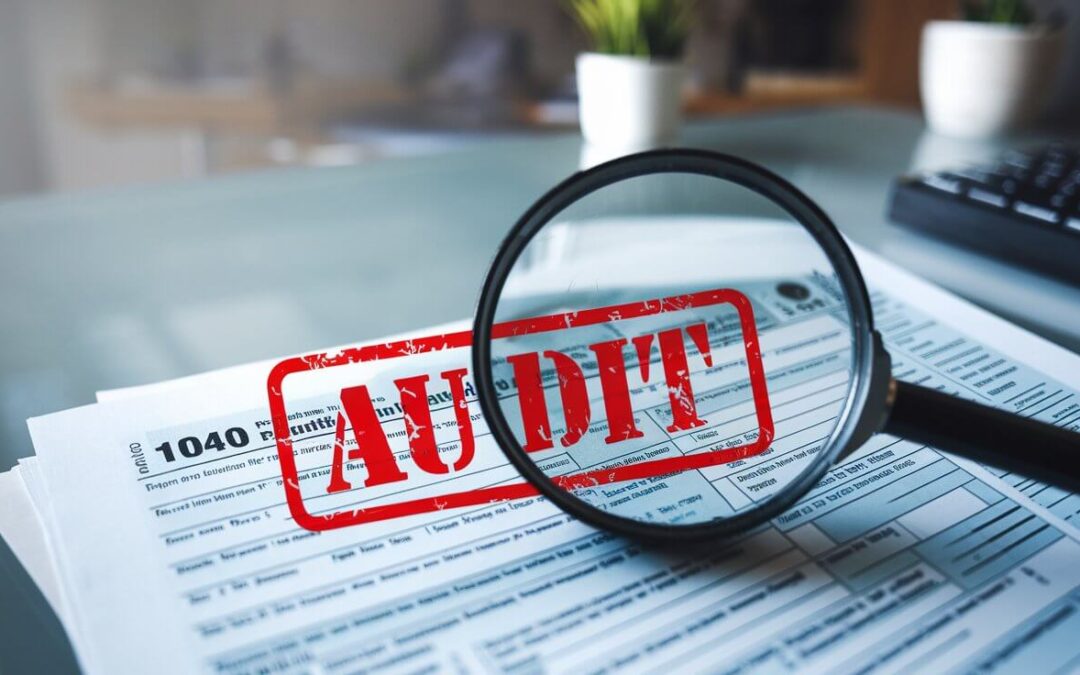When it comes to filing taxes, accuracy matters. The IRS audits only a small percentage of tax returns, but certain mistakes — known as IRS audit triggers — can significantly increase your chances of being flagged for further review.
Whether you are an individual taxpayer, self-employed, or a business owner, understanding these common tax filing mistakes can help you stay compliant and avoid unnecessary IRS scrutiny.
Table of Contents
Understanding IRS Audit Triggers: What Puts You at Risk?
The IRS uses sophisticated algorithms and data matching to identify inconsistencies in tax returns. While audits can be random, many are triggered by errors, omissions, or deductions that seem excessive compared to your income.
Here’s a breakdown of the most common tax mistakes that trigger IRS audits and how you can avoid them.
1. Failing to Report All Income
The IRS receives copies of W-2s, 1099s, and other income documents from employers and financial institutions. If your tax return does not match what the IRS has on file, it raises an immediate red flag.
How to Avoid This Mistake:
- Cross-check all W-2s and 1099s you receive with your reported income.
- If you worked freelance, received payment through Venmo, PayPal, or other third-party apps, ensure all earnings are reported, even if you did not receive a 1099-K.
- Use the IRS online account to verify the income reported under your name before filing. You can access your IRS transcript here: IRS Get Transcript.
2. Overclaiming Business Deductions
For self-employed individuals, tax deductions can significantly lower taxable income. However, excessive deductions—especially for meals, travel, and home office expenses—can invite IRS scrutiny.
How to Avoid This Mistake:
- Maintain detailed records and receipts for all business-related expenses.
- Use a separate bank account for business transactions.
- Keep an accurate mileage log and ensure that business meals and travel are properly documented.
To help you maximize deductions while remaining compliant, review our guide on Overlooked Small Business Tax Deductions That Could Save You Thousands.
3. Claiming a Home Office Deduction Incorrectly
The home office deduction is valuable for remote workers and self-employed individuals, but it has strict requirements. The IRS specifies that your home office must be exclusively and regularly used for business.
How to Avoid This Mistake:
- Ensure your home office is a dedicated space (not a shared area like a bedroom or dining room).
- If unsure, consider using the simplified deduction method, which calculates the deduction based on square footage and can reduce audit risk. Learn more about the home office deduction here: IRS Home Office Deduction.
For more details, refer to the IRS Home Office Deduction guide to help you claim this deduction correctly.
4. Rounding Numbers Instead of Using Exact Figures
Using round numbers (e.g., $5,000 instead of $4,976) might seem harmless, but the IRS views rounded numbers as a sign of estimation, which could lead to an audit.
How to Avoid This Mistake:
- Report expenses and deductions to the exact dollar based on receipts and financial records.
- Use tax software or work with a CPA in Plano, TX, to ensure precision.
5. Large Charitable Deductions Without Proper Documentation
While charitable contributions are tax-deductible, the IRS may flag donations that appear too high relative to your income.
How to Avoid This Mistake:
- Keep receipts and written acknowledgments from charities.
- If donating over $250, the IRS requires a formal written letter from the organization.
- For non-cash donations over $5,000, you may need an appraisal. To stay compliant, review the IRS guidelines on charitable contribution deductions for donation documentation requirements.
For strategies to maximize charitable giving while staying IRS-compliant, review our article on Maximizing Charitable Giving Tax Benefits.
Strategies to Minimize IRS Audit Triggers and Reduce Risk
Even if you follow all tax rules, audits can happen. However, by understanding IRS audit triggers and avoiding common red flags, you can significantly reduce your chances of being selected for an audit.
- Use tax software or hire a CPA to ensure accuracy.
- Double-check your return before filing—typos and miscalculations are common triggers.
- Be honest with deductions and avoid excessive write-offs that do not align with your income.
- File electronically to reduce errors and avoid lost paperwork.
Final Thoughts: How to Avoid IRS Audit Triggers and File with Confidence
An IRS audit does not necessarily mean you have done something wrong, but avoiding common tax filing mistakes can significantly lower your audit risk. By ensuring accuracy, maintaining records, and working with a trusted CPA firm in Plano, TX, you can file with greater confidence.
At Beckley & Associates PLLC, we help individuals and small business owners navigate complex tax rules and reduce IRS audit triggers while staying compliant.
If you need assistance with tax preparation or planning, contact us today.
Disclaimer: This article is for informational purposes only and does not constitute legal or tax advice. Please consult with your tax advisor regarding your specific situation.

